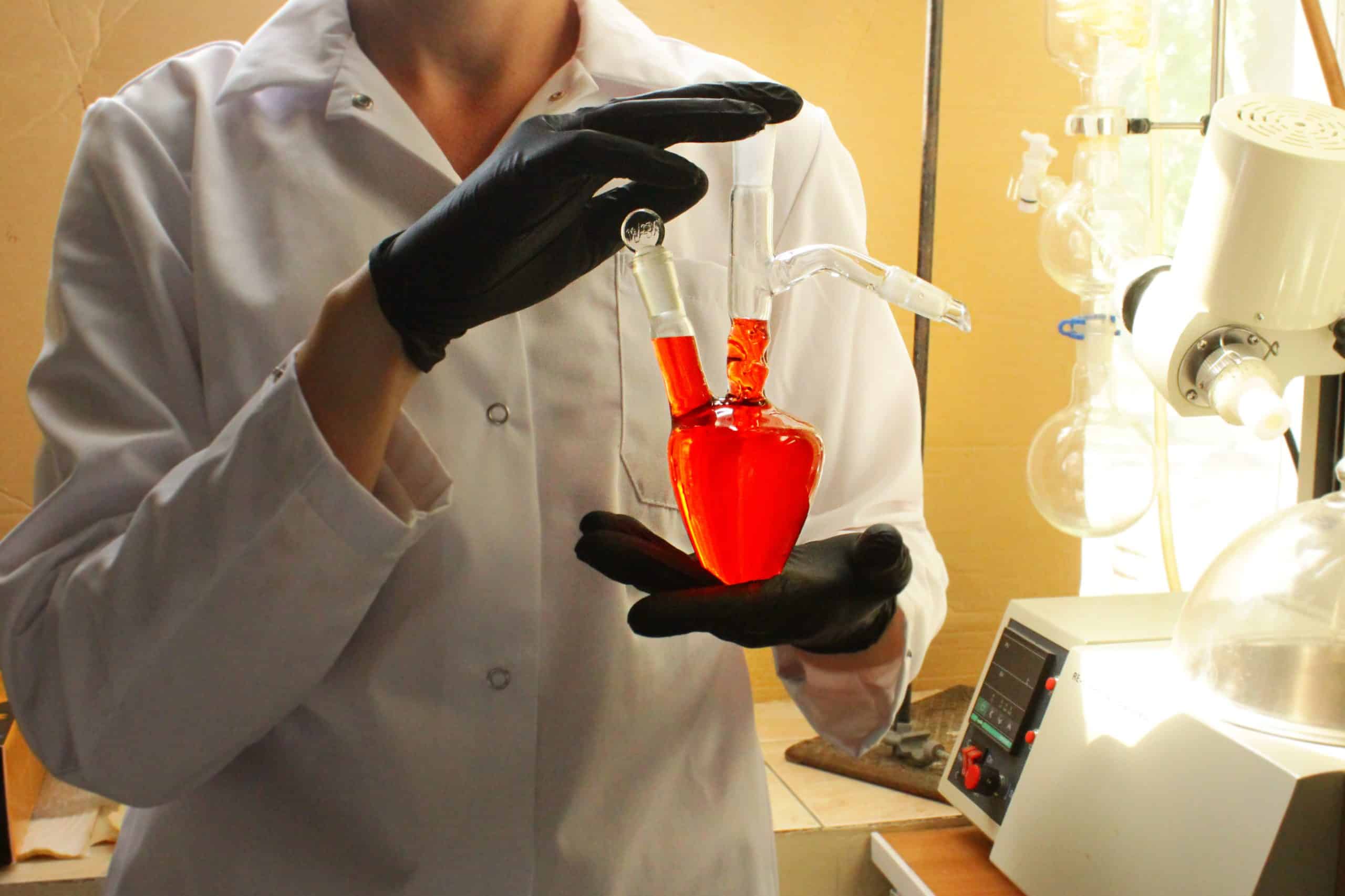Synthetic biology, often abbreviated as synbio, is a rapidly developing field. It combines principles of engineering and biology, aiming to design and construct new biological parts, devices, and systems. The field also involves re-designing existing biological systems for useful purposes. This article explores the role of synthetic biology in the United Kingdom’s biomedical research.
Synthetic Biology: An Overview
As a novel and burgeoning discipline, synthetic biology’s potential for contributing to the biomedical field is immense. The field of synbio utilizes gene engineering methods and systems biology to construct artificial biological systems for research, engineering and medical applications. Synthetic biology is a multi-disciplinary area, bringing together biology, computer science, engineering and biotechnology.
Dans le meme genre : What Are the Advanced Technologies Enhancing UK’s Emergency Response Services?
In synthetic biology, researchers create or modify organisms with the aim of producing specific desired traits or functionalities. By harnessing the power of biology and advancements in engineering, the field is pushing the boundaries of what is possible. From disease treatment to biofuel production, the possibilities appear almost limitless. However, the field also brings about new dimensions of biosecurity and biosafety risks, hence the need for robust regulations.
The Development of Synthetic Biology in the UK
In the UK, the development of synthetic biology has been facilitated by generous funding and supportive regulations. The UK government, understanding its potential, has invested heavily in synthetic biology research, seeing it as a key driver of economic growth and a solution to many societal challenges.
En parallèle : How to Utilize Smart Home Technologies to Enhance Elderly Care in the UK?
The UK is now among the global leaders in synthetic biology research and development. Several institutions and universities across the country are home to cutting-edge synthetic biology labs, where groundbreaking research is taking place. In addition, the UK boasts a thriving synbio startup scene, supported by both public and private investment.
The UK’s synbio landscape is also aided by its robust regulatory framework. While the potential benefits of synthetic biology are substantial, so are the risks. The UK has implemented stringent biosafety and biosecurity regulations, ensuring that the development and application of synthetic biology is conducted responsibly and ethically.
The Role of Synthetic Biology in Biomedical Research
Synthetic biology plays a crucial role in the UK’s biomedical research. Researchers are leveraging the capabilities of synthetic biology to understand biological systems and diseases better, and to develop innovative treatments and therapies.
Synthetic biology is being used to engineer bacteria that can produce biofuels, clean up oil spills, or even detect and destroy cancer cells. In addition, researchers are using synthetic biology to create disease models, which can provide insights into disease mechanisms and potential therapies.
Moreover, synthetic biology is key in the field of gene therapy. Researchers are designing and creating synthetic genes to replace faulty or missing genes in patients with genetic diseases. This has the potential to treat, or even cure, a host of genetic disorders.
Synthetic Biology, Biosecurity and Biosafety
While the potential of synthetic biology is immense, it’s crucial to consider biosecurity and biosafety risks. This is a challenging area due to the same qualities that make synthetic biology so promising: its capacity for rapid innovation and wide applicability.
Some of the biosecurity concerns associated with synthetic biology include the unintentional creation of harmful organisms, the misuse of synthetic biology for harmful purposes, and the potential for accidental release of synthetic organisms into the environment.
In the UK, these risks are mitigated through stringent regulations and oversight. The UK has a comprehensive regulatory framework for synthetic biology, which includes oversight of lab safety measures, the handling and transport of synthetic organisms, and the release of synthetic organisms into the environment.
Crossref, PubMed and Scholarly Research in Synthetic Biology
Crossref and PubMed are invaluable resources for scholarly research in the field of synthetic biology. Scholarly articles, research papers, case studies and review articles published on these platforms provide a wealth of information about the latest developments and trends in synthetic biology.
Researchers, scholars, and anyone interested in the field can use these platforms to access a plethora of information on a wide range of topics related to synthetic biology, from the latest studies on the engineering of synthetic organisms, to in-depth reviews of the biosecurity implications of synthetic biology.
As the field of synthetic biology continues to grow and evolve, these resources will continue to be an important tool for staying up-to-date with the latest research and developments in the field. The academic community’s contribution to the body of knowledge in synthetic biology is invaluable, aiding in the responsible and beneficial application of synthetic biology in various fields, including biomedical research.
Synthetic Biology and Clinical Trials in the UK
In the UK, synthetic biology is instrumental in the conception and execution of clinical trials. This approach merges biology and engineering, enabling researchers to design and develop new biological parts, devices, and systems to tackle complex health challenges. Synthetic biology’s unique methodology allows scientists to understand and replicate human biology in a controlled environment, providing an unprecedented opportunity to conduct clinical trials of potential therapeutic interventions.
The use of synbio in clinical trials is not a new concept; however, its potential is only just beginning to be realised. Traditionally, clinical trials are conducted using animal models or isolated human cells. However, these methods often fail to accurately predict how a drug will interact with complex human biological systems in a real-world setting. Synthetic biology bypasses these limitations by allowing researchers to model human disease and drug responses in a controlled lab environment. This is particularly advantageous in the development of treatments for diseases with complex genetic origins, such as cancer.
Furthermore, synthetic biology is also enabling the creation of personalised medicine. This involves designing therapies tailored to an individual’s genetic makeup, significantly improving treatment outcomes. For instance, scientists at the Huazhong University of Science Technology Wuhan are utilising synthetic biology to create personalised cancer vaccines, which are currently undergoing clinical trials.
However, the use of synthetic biology in clinical trials also raises ethical and biosecurity considerations. The creation of synthetic life and genetically modified organisms necessitates strict oversight to prevent potential misuse and unintended consequences. In the UK, robust regulations are in place to address these biosecurity risks, ensuring the safe and ethically sound application of synthetic biology in clinical trials.
Future of Synthetic Biology in UK’s Biomedical Research: A Conclusion
As we assess the role of synthetic biology in the UK’s biomedical research, it’s evident that this field holds exceptional promise. By merging biology with engineering principles, synthetic biology is powering innovation and discovery, from personalised medicine to sustainable biofuels.
Despite its relative novelty, the impact of synthetic biology is already profound. The field is transforming our understanding of complex biological systems, catalysing clinical trials, and potentially revolutionising therapeutic approaches. Furthermore, synthetic biology is poised to drive economic growth, given its broad applicability across various sectors, including healthcare, energy, and environment.
However, the rapid advancement of synthetic biology also calls for vigilance in managing potential biosafety and biosecurity risks. In the UK, a comprehensive regulatory framework is in place to ensure that synthetic biology is developed and applied responsibly, which will be crucial in maintaining public trust and ensuring the sustainability of the field.
Looking ahead, it’s clear that synthetic biology will continue to play a pivotal role in the UK’s biomedical research. As this field evolves, resources like Crossref, PubMed, and Google Scholar will be invaluable in disseminating research findings and promoting collaboration among scientists.
In conclusion, the future of synthetic biology in the UK’s biomedical research looks bright. With continued investment, robust regulation, and responsible innovation, synthetic biology holds the potential to reshape our understanding of life, health, and disease, promising a future where biology is no longer a barrier but a canvas for innovation.











